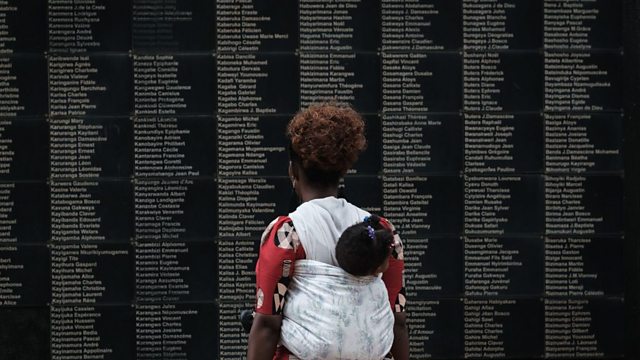The Rwandans living in limbo
International dilemmas over justice for Rwanda; what worries Colombia’s daredevil motorcyclists; Iran's protests and the silent majority; a WW1 legacy in Slovenian forests.
Pascale Harter introduces the human stories behind the headlines from Niger, Colombia, Iran and Slovenia.
What happened to those accused of crimes against humanity during Rwanda’s genocide? Michela Wrong visits a safe house in Niamey, Niger, where eight elderly Rwandan men are living in limbo after they were prosecuted for their alleged role in the country's war crimes. Four were acquitted, and four have now served out their prison sentences, but their future poses questions about the course of international justice.
Colombia recently elected its first-ever leftist President, Gustavo Petro. He offered bold promises to make the country’s tax system fairer, reduce its stark income inequality and make the economy greener. Rohan Montgomery asked some of the motorcyclists riding the steep hills and winding paths of the city of Medellin whether the new government has the right roadmap to reform.
Iran has been convulsed by months of protest over mandatory dress codes, but how much wider support do the street demonstrators really have? Iranian-American author Azadeh Moaveni has seen many waves of revolt swell up before, with little result – but believes this year’s events are of a different order.
And Nick Hunt takes a walk through Slovenia’s forests, passing through many a former World War One battlefield along the way. The legacy of that conflict collided with the new threats of climate change this summer as wildfires detonated long-buried munitions, causing terrifying blazes.
Producer: Polly Hope
Production Co-Ordinator: Iona Hammond
Editor: Richard Fenton-Smith
Last on
More episodes
Previous
Broadcasts
- Sat 10 Dec 2022 16:06GMT���˿��� World Service News Internet
- Sun 11 Dec 2022 04:06GMT���˿��� World Service
- Sun 11 Dec 2022 09:06GMT���˿��� World Service
- Mon 12 Dec 2022 00:06GMT���˿��� World Service

